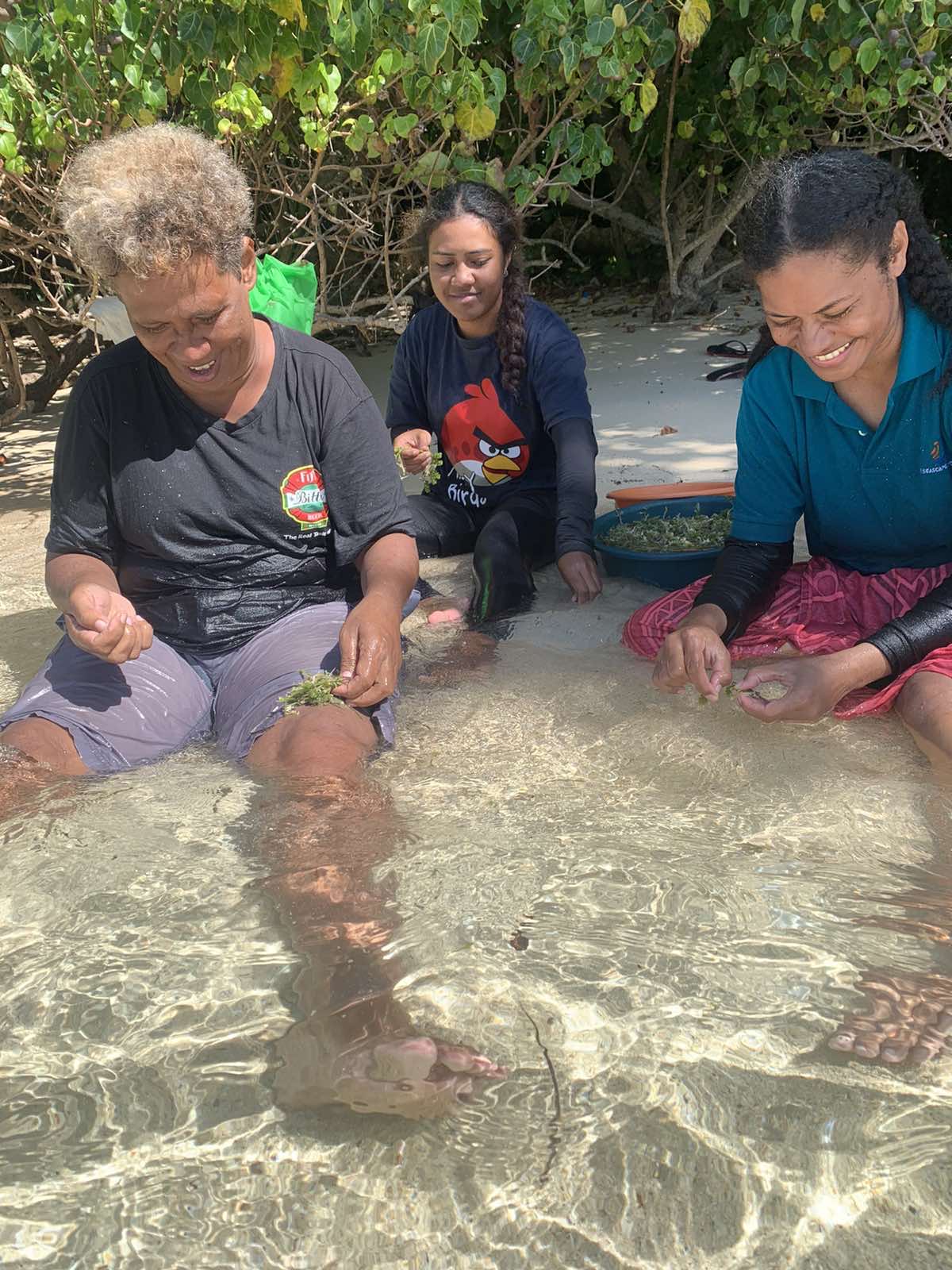Localised environmental challenges require localised solutions. And some of the most workable
solutions lie with the first-hand users of resources and custodians of Indigenous local knowledge (ILK) –
the fisherwomen.
That was one of the key outcomes of Miss Salanieta Kitolelei’s recent published article titled
Fisherwomen’s Indigenous and Local Knowledge – the Hidden Gems for the Management of Marine and
Freshwater Resources in Fiji. Mrs. Kitolelei, a PhD scholarship recipient of the Pacific-European Union
Marine Partnership (PEUMP) Programme at the Institute of Marine Resources (IMR) highlighted and
captured a wealth of knowledge held by fisherwomen in 11 communities from Fiji’s traditionally
renowned fishing communities or suppliers of resources to the nearby fishing markets or towns.
‘Fisherwomen in Fiji play a vital role in the daily sustenance and livelihood of their families and they use
their Indigenous and local knowledge to harvest resources. In some Pacific Islands, including Fiji, women
were/are the main fishers harvesting shellfish and smaller finfish for subsistence use and livelihoods’.
‘Fisherwomen and fishermen, as resource users, hold unique local knowledge of their resources and
environments, particularly those which they target.’ said Miss Kitolelei. ‘In order to properly manage
resources, fishers (men and women) must understand the contributions of their ILK and skills to
informing knowledge gaps in scientific data for their communities.’
This study provides insights into fisherwomen’s ILK and how they are hidden gems needed to inform
more holistic resource management efforts at the community level. The study also creates an awareness
on the importance of women’s ILK and its contributions to fisheries and consequently how fisherwomen
interpret the effects of environmental changes on their marine and freshwater resources.
‘Acknowledging and appreciating the importance of women’s ILK among all ages and all levels of society,
is the first step a community takes towards effective resource management from grassroots level’, said
Cherie Morris, Assistant Lecturer and interim PEUMP team leader, USP. ‘Whilst decision-making in
communities remains mostly male dominated, including women’s ILK when managing local resources,
will provide women’s perspective and in-depth knowledge needed to mitigate declining fisheries
resources and biodiversity loss faced in different communities’.
Another key aspect highlighted in the article was the notion that women as nurturers often share their
ILK to their children, creating an awareness of the importance of their natural resources and the lesson
of catching only what is needed. And finally, this study provides recommendations for the incorporation
fisherwomen’s ILK into management practices which can benefit the communities, fishers and
resources.
USP is one of four key implementing partners of the PEUMP Programme, an initiative funded by the
European Union and the Swedish government. The overall EUR 45million program promotes sustainable
management and sound ocean governance for food security and economic growth while addressing
climate change resilience and conservation of marine biodiversity. It follows a comprehensive approach,
integrating issues related to ocean fisheries, coastal fisheries, community development, marine
conservation and capacity building under one single regional action. The PEUMP programme is housed
within the Institute of Marine Resources within the School of Agriculture, Geography, Environment,
Ocean and Natural Sciences (SAGEONS).

